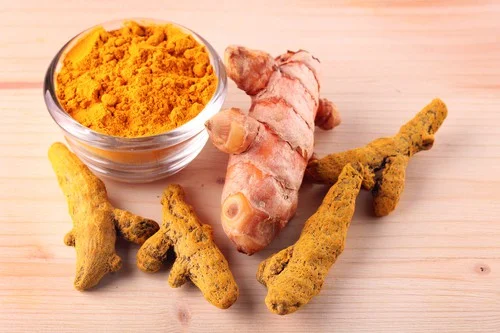For most people, the onset of pain warrants reaching for acetaminophen, ibuprofen, or another pharmaceutical drug. However, extended use of such medications is linked to various side effects, including intestinal damage and liver failure. This is where natural remedies pose a considerable alternative.
Whether you’re experiencing chronic pain, muscle tension or minor headaches, there are several traditional methods and treatments that can help you feel better. In this guide, we’ll focus on those that are backed by sufficient research so you can immediately turn to the most effective solutions. Let’s begin.
Chapter Overview
Turmeric
An herbal spice that’s popular in parts of Asia and India, turmeric is said to have antiseptic, antibiotic, and antioxidant properties. The curry ingredient is shown to improve circulation and prevent blood clotting. It’s also commonly used as a topical treatment for wounds.
Part of this is possible thanks to curcumin, an active compound found in turmeric that reduces the presence of enzymes responsible for the creation of pain-producing hormones. As an added bonus, turmeric can assist in relieving symptoms of flu, such as congestion. Be sure to stock up on this natural remedy ahead of winter.
Kratom
This plant-based treatment is being used more and more not only to relieve pain, but also to enhance creativity, lower anxiety, improve productivity and deliver a range of other benefits. Kratom is also consumed by those who suffer from depression and sleep disorders to return to a sense of calm and normality when other solutions have failed them.
You can learn all about kratom online or from an official seller. The main points that you need to know are that you can consume it in various forms including capsules, teas, or food additives. It’s legal, can be purchased easily and is not addictive. You can also take kratom daily as a supplement to boost your mood and increase energy.
Willow Bark
This natural remedy is used by many to alleviate headaches, back pain and discomfort caused by osteoarthritis. Willow bark derives its abilities from an active ingredient called salicin, which reduces inflammation. You can take this treatment in the form of capsules, tea, or liquid. Make sure to start with lower doses as excess salicin can cause bleeding.
Rosemary
Often used to add flavor to chicken and lamb dishes, rosemary also has many seldom-discussed health benefits that make it a potent pain reliever. You can pick up the ingredient as a powder or fresh leaves to add to your tea. In any case, the antioxidant and anti-inflammatory properties of rosemary can help you feel better in times of discomfort.
Since rosemary is also anti-spasmodic, it might be effective for treating muscle cramps and spasms. Another use is to apply the plant in liquid form to the forehead or inhale the aroma to reduce migraines.
Fish Oil
If you’re looking particularly to reduce inflammation, fish oil is worth a try. The natural substance is incomparably high in omega-3 fatty acids, which are known to reduce blood pressure, slow the development of plaque in the arteries and support overall heart health. Since inflammation is linked to pain, fish oil is also a good supplement for pain relief.
Additional Recommendations
While certainly useful, the options we’ve discussed so far aren’t the only natural pain relievers. Remember that exercise is a no less potent painkiller as it produces endorphins that help you feel better and stronger. With some practice, meditation can also prove to be an effective way to enhance how you feel and reduce any discomfort.
Before you splurge on store-bought medications, make sure to give these natural solutions a try. There is bound to be at least one remedy that will provide the relief you seek.

